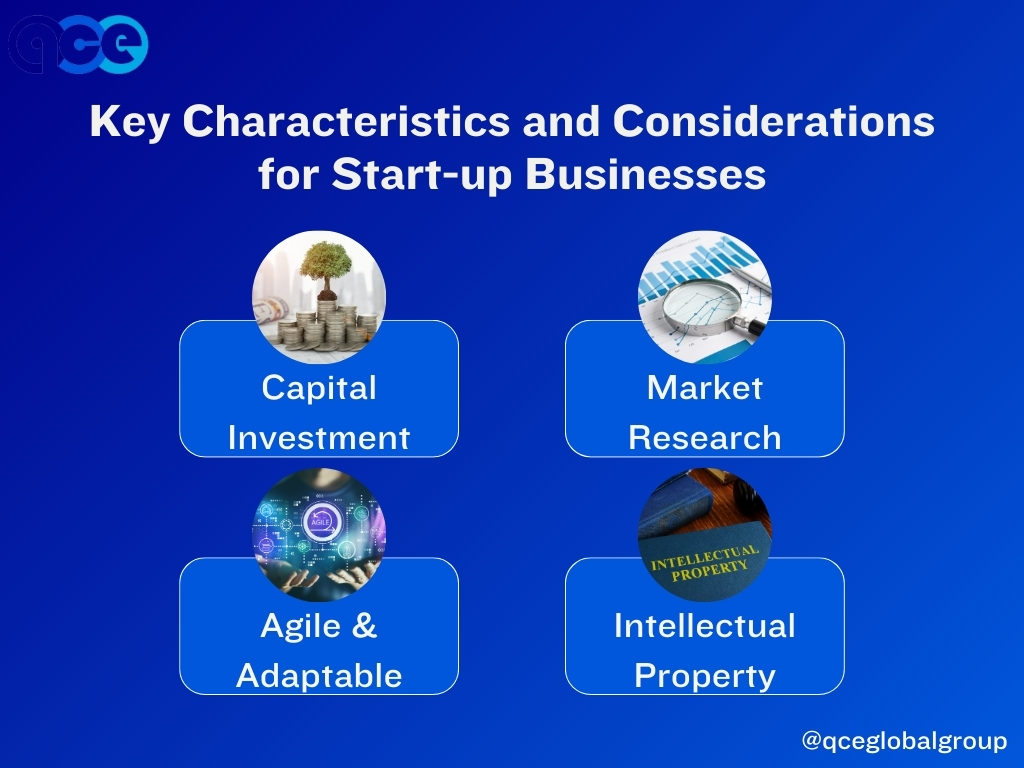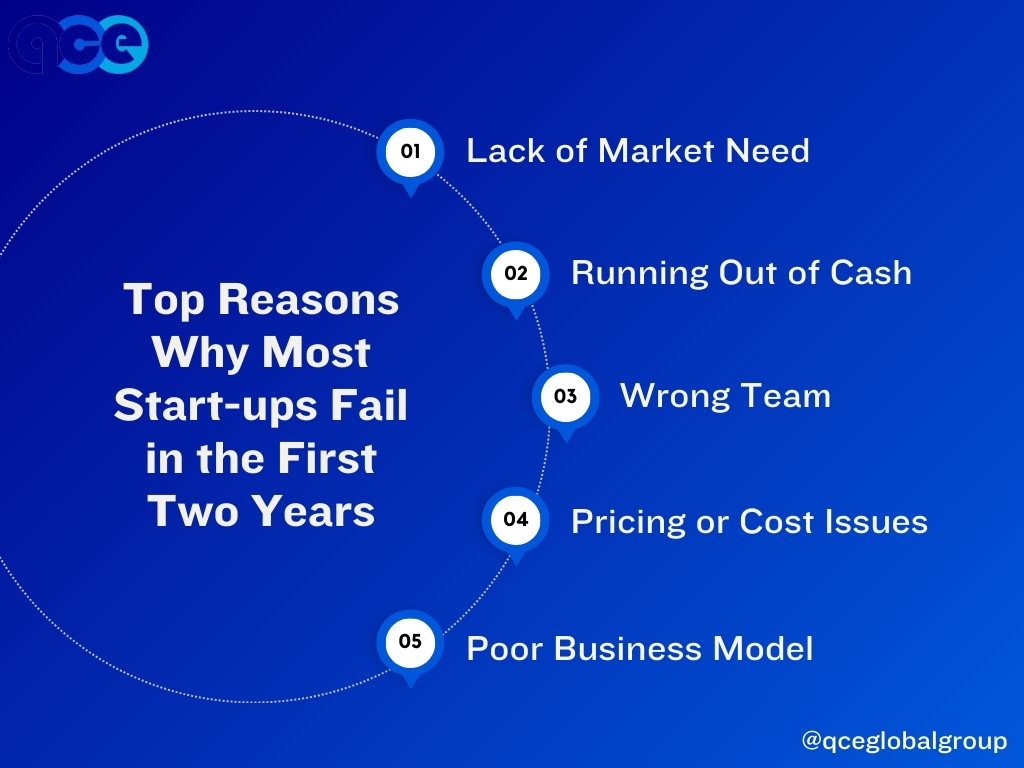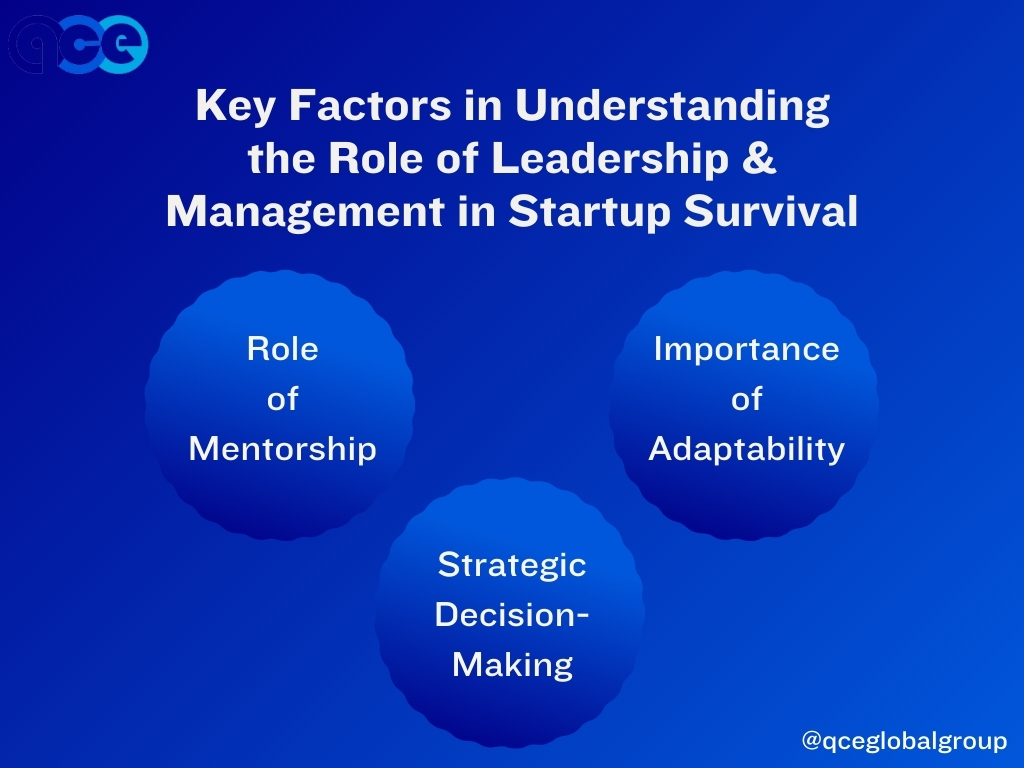Are you ready to beat the odds and transform your startup into a successful, thriving business?
We understand the hurdles you face and are here to help. Our team of experts offers tailored solutions, from market research and business planning to leadership coaching and financial management, ensuring that your venture is well-equipped to navigate the rocky entrepreneurial terrain.
The world of start-ups is exciting yet challenging, with approximately 20% failing in their first year and almost half not surviving past their fifth year, according to the U.S Small Business Administration. Common reasons for failure include lack of market need, running out of cash, and not having the right team. To increase their chances of survival, start-ups should prioritize understanding market needs, have strong financial management, a solid business plan, and effective leadership. Learning from successful companies like Airbnb and Slack, which overcame initial challenges through perseverance and smart strategies, can also provide valuable insights. Despite the high failure rate, with careful planning and a readiness to adapt, start-ups can thrive in competitive markets.
Table of Contents
- Introduction: The Startling Statistics of Start-ups
- Defining a Start-up: What Qualifies as a Business Venture?
- The High Failure Rate of Start-ups: A Closer Look
- Top Reasons Why Most Start-ups Fail in the First Two Years
- Unraveling Financial Challenges Faced by New Businesses
- Importance of Market Research & Its Often Neglected Role in Success
- The Impact of Inadequate Business Planning on Early Stage Ventures
- Understanding the Role of Leadership & Management in Startup Survival
- Case Studies: Successful Companies that Overcame Early Hurdles
- Final Thoughts: How to Avoid Common Pitfalls & Succeed as a Startup?
Introduction: The Startling Statistics of Start-ups
The entrepreneurial world is a thrilling yet daunting arena. It’s a place where innovators, dreamers, and risk-takers gather to transform their ideas into tangible businesses. However, the harsh reality is that not all start-ups survive past their infancy. According to the U.S Small Business Administration (SBA), approximately 20% of start-ups fail in their first year, while around half do not make it past their fifth year. These statistics are indeed startling and paint a grim picture of the challenging journey most entrepreneurs face. Every year, thousands of start-ups spring up globally with high hopes and big dreams, only for many to fail within the first two years. According to CB Insights, a whopping 70% of tech startups fail — usually about 20 months after raising financing (median). A report by Failory revealed that 90% of start-ups fail eventually. However, they mostly wind up during their initial years.
Defining a Start-up: What Qualifies as a Business Venture?

Before delving deeper into why most start-ups do not survive past two years, let’s define what constitutes a start-up. Essentially, it is an entrepreneurial venture or new business created with an innovative idea or concept, intending to meet specific market needs or solve particular problems. Startups can span various industries from technology and healthcare to retail and service sectors. They typically begin as small establishments fueled by ambitious founders seeking growth opportunities through unique products or services that may disrupt existing market paradigms.
Here are the 10 Key Characteristics and Considerations for Start-up Businesses:
- Start-up Evaluation: A start-up is typically evaluated based on its innovation level, business model, scalability, and potential to disrupt existing markets. The uniqueness of their product or service, along with a robust business plan that outlines a clear path to profit, is integral to their success.
- Capital Investment: Most start-ups require substantial capital investment to fuel their growth. This funding is often derived from various sources, including venture capitalists, angel investors, or crowdfunding.
- Risk and Reward: Starting a new business venture always carries a significant degree of risk. However, the potential for high returns on investment makes start-ups an attractive proposition for investors.
- Market Research: A start-up’s success largely depends on its ability to identify and fill a gap in the market. Thorough market research and understanding customer needs are crucial in crafting a product or service that meets those needs.
- Technology-Driven: Many start-ups are technology-driven, leveraging cutting-edge tech to deliver solutions that are faster, better, and more efficient than traditional methods. From AI to blockchain, start-ups are often at the forefront of technological advancement.
- Agile and Adaptable: Start-ups must be highly adaptable to survive and thrive. This agility allows them to respond quickly to market changes and customer feedback, continually iterating their product or service to better meet customer needs.
- Team and Culture: The people behind the start-up are as important as the idea itself. A strong, cohesive team with a shared vision can drive a start-up to success. Moreover, fostering a culture of innovation and openness can inspire new ideas and keep the team motivated.
- Growth and Exit Strategy: Most start-ups aim for rapid growth, with the goal of eventually being acquired by a larger company or going public through an IPO. Having a clear exit strategy is essential for attracting investment and guiding the company’s direction.
- Intellectual Property: For many start-ups, their intellectual property (such as patents, copyrights, or trademarks) is their most valuable asset. Protecting this IP is crucial to maintaining a competitive edge and attracting investment.
- Customer-Centric: Successful start-ups are often highly customer-centric, prioritizing customer satisfaction and engagement. This customer focus can help build brand loyalty and drive growth.
The High Failure Rate of Start-ups: A Closer Look
While there’s no one-size-fits-all approach in understanding why startups fail because each has its own unique set of challenges linked to industry trends, market dynamics, etc., certain common reasons emerge when analyzing startup failures over time. A study by the Statistic Brain Research Institute analyzed various types of startups, including corporations, sole proprietorships & partnerships, and found that 25% of all businesses fail within the first year, 36% by the second year, and by the fifth year, more than half have failed. These numbers may seem alarming but are a stark reflection of reality in the entrepreneurial world.
- Lack of Market Need: Many startups fail because they create a product or service without confirming that there’s a significant market need for it. This is why market research and validation is crucial before launching.
- Insufficient Capital: Startups often underestimate how much funding they need to survive and grow. Without adequate capital, they can quickly run into cash flow problems and can’t afford to keep their business running.
- Poor Business Model: A flawed business model that doesn’t generate sustainable revenue is a common reason for startup failure. This includes unrealistic projections or not understanding the unit economics of their business.
- Lack of Unique Value Proposition: If a startup can’t differentiate itself from competitors, it becomes difficult to attract and retain customers. Startups need a unique value proposition that makes them stand out.
- Ineffective Marketing Strategy: Without a strong marketing strategy, it’s challenging for startups to reach their target audience and generate sales. This includes poor social media presence and lack of SEO.
- Inadequate Team: Startups need a diverse team with different skill sets. If the team lacks necessary skills or experience, it can lead to poor decision making and execution.
- Poor Product Timing: Launching a product too early or too late can lead to failure. If launched too early, the market might not be ready. If too late, there might be too much competition.
- Ignoring Customer Feedback: Not listening to customer feedback can lead to a product that doesn’t meet market needs. Customer feedback should be utilized to make necessary adjustments.
- Lack of Focus: Pursuing too many ideas at once can cause a lack of focus and dilute resources. This can lead to burnout and a lack of progress in any one area.
- Not Adapting to Changes: The market and industry trends change rapidly. Startups that fail to adapt to these changes can find themselves out of touch with customer needs and left behind by competitors.
Top Reasons Why Most Start-ups Fail in the First Two Years

There isn’t a single reason that leads to startup failure. Rather, it’s an amalgamation of factors that lead to a company’s downfall. According to a CB Insights’ study on post-mortem essays from founders and investors on startup failures, lack of market need (42%), running out of cash (29%), not having the right team (23%), got outcompeted (19%), and pricing or cost issues (18%) top the list. Similarly, the Startup Genome report cites premature scaling as one of the leading reasons for startup failure. It’s when startups focus too much on scaling their operations instead of perfecting their product or finding product-market fit.
- Lack of Market Need: Many startups fail because they build a product or service that no one needs. It’s critical for startups to conduct thorough market research and ensure there’s a demand for their offering before launching.
- Running Out of Cash: Startups often underestimate the amount of capital they need to get through the initial stages of their business. They also struggle to secure additional funding, leading to financial distress and eventual shutdown.
- Wrong Team: The success of a startup largely depends on the skills, experience, and commitment of the team. A lack of relevant skills or poor team dynamics can cause a startup to fail.
- Strong Competition: If a startup can’t differentiate itself or keep up with its competitors, it’s likely to fail. Startups need a unique value proposition and a solid strategy to stay ahead.
- Pricing or Cost Issues: Startups sometimes struggle to price their products correctly or manage their costs effectively. This can lead to financial difficulties and ultimately, failure.
- Premature Scaling: Startups that scale too quickly often encounter problems. It’s important to have a solid foundation and a proven business model before trying to expand.
- Poor Business Model: A flawed or non-existent business model is another common reason for startup failure. Startups need a clear plan for how they will generate revenue and achieve profitability.
- Lack of Customer Focus: Startups that don’t focus on the needs and wants of their customers are likely to fail. Customer feedback and engagement are crucial for product development and market fit.
- Poor Marketing Strategy: If a startup can’t effectively communicate its value proposition to potential customers, it’s unlikely to succeed. A solid marketing strategy is key to attracting and retaining customers.
- Product Development Problems: If a startup can’t deliver a quality product on time and within budget, it’s likely to fail. Product development problems can arise from technical difficulties, lack of expertise, or poor project management.
Unraveling Financial Challenges Faced by New Businesses
One major challenge startups face is securing adequate financing for survival & growth. Without proper financial planning & management skills, even companies with great potential can falter. Funding is crucial for start-ups as they often operate at a loss during their early years due to heavy investment in research development, marketing efforts, etc. If they cannot secure sufficient funding through venture capitalists or angel investors, then they may struggle with cash flow issues which can ultimately lead to bankruptcy.
Here are the 10 Solutions to Financial Challenges Faced by New Businesses:
- Financial Education: Startups need to invest in financial education to understand the nuances of managing finances. This includes understanding cash flow, expenses, and revenue projections.
- Business Model Validation: Before seeking funding, startups need to validate their business model. A validated business model with a clear path to profitability can attract investors.
- Diversified Funding Sources: Instead of relying on one source, startups should explore various funding options such as crowdfunding, grants, loans, and equity financing.
- Efficient Cash Flow Management: Startups need to manage their cash flow effectively to avoid running out of funds. This includes careful budgeting, reducing unnecessary expenses, and improving collection efforts.
- Financial Advisory Services: Engaging with financial advisors or consultants can help startups navigate through financial challenges. They can provide valuable insights and strategies for financial management.
- Robust Financial Planning: Startups need to develop a robust financial plan that includes a detailed budget, revenue projections, and contingency plans.
- Investor Relations: Maintaining good relations with investors is crucial. Regular updates on business progress and transparency in financial matters can build investor trust and result in continued financial support.
- Financial Technology: Startups can leverage financial technology tools for better financial management. These tools can streamline financial operations, improve accuracy, and provide real-time financial insights.
- Debt Management: Startups need to manage their debts effectively. High levels of debt can discourage investors and put financial pressure on the business.
- Exit Strategy: Startups should also plan for an exit strategy. This can provide a return on investment for the founders and investors, and can be used as a safety net in case the business fails.
Importance of Market Research & Its Often Neglected Role in Success

Another common oversight among start-ups is neglecting market research—a critical component ensuring business viability. Understanding consumer behavior patterns allows businesses to tailor products/services accordingly thus increasing chances for success. Inadequate market research might result in startups developing products that don’t meet customer needs or entering markets with insufficient demand—both scenarios detrimental towards survival rates. Therefore, a thorough understanding of target audience preferences combined with competitive analysis can help startups position themselves strategically.
Here are the 10 Key Reasons Why Market Research is Essential for Startups:
- Market Segmentation: Market research plays a crucial role in identifying different market segments, which allows businesses to target their products or services to specific groups, increasing the chances of success.
- Reducing Business Risks: Market research can help startups avoid costly mistakes by identifying potential risks and obstacles in the market. It can provide valuable insights into regulatory issues, technological changes, and competitor strategies.
- Identifying Opportunities: Through market research, startups can identify new opportunities for growth, such as untapped markets or potential partnerships.
- Understanding Trends: Market research can provide insights into emerging trends, allowing businesses to adapt their products or strategies accordingly.
- Pricing Strategy: Market research can provide valuable data on what customers are willing to pay for a product or service, helping startups to establish a competitive and profitable pricing strategy.
- Product Development: Market research can provide insights into what features or attributes customers value most, which can guide product development efforts.
- Customer Satisfaction: Regular market research can help startups understand their customer’s level of satisfaction and identify areas for improvement.
- Brand Positioning: Market research can help businesses understand how they are perceived in the marketplace, allowing them to position their brand effectively.
- Marketing Strategy: Market research can guide the development of a successful marketing strategy, from choosing the right channels to crafting compelling messages.
- Investment Decisions: For startups seeking investment, market research can provide the data needed to convince potential investors of the viability and potential profitability of the business.
The Impact of Inadequate Business Planning on Early Stage Ventures
A solid business plan is the roadmap that guides start-ups through different phases of their growth journey. The absence of a well-defined strategy can result in misallocated resources, unclear objectives, and ultimately, failure. According to a Palo Alto Software report, entrepreneurs who wrote formal business plans were 16% more likely to achieve viability. Conversely, lack of planning often leads startups down paths that aren’t sustainable in the long run, leading to financial strain and possible wind-up.
Here are the 10 Detrimental Impacts of Inadequate Business Planning on Early Stage Ventures:
- Poor Financial Management: Without a business plan, startups may lack clear financial projections, leading to overspending or under-budgeting, which can result in financial instability.
- Lack of Clear Vision and Goals: Inadequate business planning can result in a lack of clear direction, which can lead to confusion and conflicting priorities among team members.
- Uncontrolled Growth: Without a strategic business plan, startups may experience uncontrolled growth, which can lead to operational inefficiencies and potential collapse.
- Weak Market Position: Without proper business planning, startups may not fully understand their target market, leading to poor product-market fit and weak competitive positioning.
- Inefficient Resource Allocation: Startups without a business plan often struggle to allocate resources efficiently, leading to waste and inefficiencies.
- Poor Decision Making: In the absence of a well-structured business plan, startups may not have a solid framework for making important business decisions, leading to poor choices that can impact their success.
- Difficulty in Raising Capital: Investors typically want to see a solid business plan before they invest. Without one, startups may struggle to secure the necessary funding for growth.
- Lack of Risk Management: Without a business plan, startups may not effectively identify and manage potential risks, which could have serious implications for the business.
- Lack of Performance Metrics: Without clear business objectives outlined in a business plan, startups may struggle to measure performance and make necessary adjustments.
- Inability to Attract Talents: A clear business plan not only attracts investors but also talented employees. Without one, startups may struggle to attract and retain the best talents, impacting their growth and success.
Understanding the Role of Leadership & Management in Startup Survival

Startups are like ships navigating uncharted waters, and their captains—the founders or leaders—are responsible for steering them towards success. Effective leadership involves making strategic decisions while managing teams efficiently to reach common goals. However, not all founders possess the necessary leadership skills needed for such demanding roles, hence they might face difficulties managing various aspects including team dynamics, handling pressure during crises, etc.—all factors contributing towards startup success or failure.
Here are the 10 Key Factors in Understanding the Role of Leadership & Management in Startup Survival:
- Leadership Development Programs: Startups can invest in leadership development programs that offer tools, techniques, and strategies to enhance leadership skills. These programs can also provide founders with the ability to handle crises and manage team dynamics effectively.
- Role of Mentorship: Experienced mentors can guide startup leaders through complex situations, offering insights and knowledge that can be crucial for their growth and survival. This can help leaders make more informed strategic decisions.
- Emphasis on Team Building: Successful leaders prioritize building a cohesive team with a shared vision and clear roles. This can create a supportive environment conducive to productivity and innovation.
- Importance of Adaptability: Startup leaders must be able to adapt to rapidly changing environments, market trends, and customer needs. This adaptability can help startups stay ahead of the competition and navigate through challenges.
- Balancing Autonomy with Control: Effective leaders strike a balance between giving team members autonomy and maintaining control over the overall direction of the startup. This can foster creativity while ensuring alignment with the startup’s vision.
- Cultivating Resilience: Leaders should cultivate resilience to withstand the pressures of running a startup. This can help them recover from setbacks and keep the startup moving forward.
- Strategic Decision-Making: Leaders should be skilled in strategic decision-making, which involves evaluating various factors and potential outcomes before making decisions that can impact the startup’s future.
- Communication Skills: Effective communication is key in leadership. Leaders should be able to articulate their vision, expectations, and feedback clearly to their team, investors, and stakeholders.
- Emotional Intelligence: Leaders should possess emotional intelligence, which can help them understand and manage their own emotions and those of their team members. This can lead to better relationships, increased motivation, and improved team dynamics.
- Understanding and Managing Risk: A crucial part of leadership is understanding and managing risk. Leaders should be able to identify potential risks, evaluate their impact, and develop strategies to mitigate them. This can enhance the startup’s resilience and chances of survival.
Case Studies: Successful Companies that Overcame Early Hurdles
Despite high failure rates, some startups survive against odds, becoming successful companies eventually like Airbnb and Slack—both faced initial challenges but overcame them through perseverance combined with smart strategies. Airbnb struggled initially as traditional investors didn’t understand their idea, yet they persisted, refining their business model, which led them to become a one-of-a-kind hospitality service provider today. Similarly, Slack started off as a gaming company but pivoted into a workplace communication tool when things didn’t work out, showcasing adaptability—a key trait required for startup survival.
- Dropbox: Dropbox faced significant competition from tech giants like Google and Microsoft. It overcame this challenge by focusing on a superior user experience and integrating with other apps to become an integral part of the workflow.
- Tesla: Despite numerous production delays, financial struggles, and criticism about its business model, Tesla managed to revolutionize the automobile industry through continuous innovation and commitment to its mission.
- Uber: Uber had to navigate complex regulatory environments and opposition from traditional taxi services. It successfully overcame these hurdles by lobbying for regulatory changes and offering superior convenience and pricing.
- Spotify: Spotify had to convince music labels to allow their music on their platform, as well as compete against established players like Apple and Amazon. It overcame these challenges through innovative features like playlists and social sharing.
- Stripe: Initially, Stripe was perceived as too complex for average users. However, it simplified its product and focused on providing a seamless payment experience, making it a favorite among developers and online businesses.
- Netflix: Netflix started as a DVD rental service and had to reinvent its business model to become a streaming giant. It overcame challenges by investing heavily in original content and a robust streaming infrastructure.
- Pinterest: Pinterest had to fight off copycats and skepticism about its value proposition. It overcame these challenges by focusing on a unique visual discovery platform, which eventually attracted a large user base and advertisers.
- Zoom: Zoom faced intense competition from established video conferencing tools like Skype and Google Hangouts. It overcame this by offering superior video quality, ease of use, and innovative features like virtual backgrounds.
- Shopify: Shopify initially struggled with convincing businesses to move online. By focusing on ease of use, customer service and offering a one-stop shop for e-commerce needs, it has become a leading platform for businesses to set up their online stores.
- LinkedIn: LinkedIn faced initial hurdles as a professional social networking site. It overcame these by focusing on providing value to job seekers and recruiters, eventually becoming a must-have tool for professionals.
Final Thoughts: How to Avoid Common Pitfalls & Succeed as a Startup?
Surviving initial years is undoubtedly challenging yet feasible, provided startups adopt smart strategies keeping potential pitfalls at bay. Startups should prioritize understanding market needs before launching products/services rather than assuming what customers want based on personal biases or assumptions. Moreover, having strong financial management practices along with a solid business plan can aid survival during early years, while effective leadership can navigate startups through various challenges. Learning from successful companies that overcame initial hurdles can also provide valuable insights for startups aiming to thrive in competitive markets. In conclusion, while the journey of a start-up is fraught with challenges and uncertainties, with careful planning, adequate market research, strong leadership, and readiness to adapt & learn from failures, startups can increase their chances of survival and eventual success.

Don’t let your startup dreams become a statistic. With the right planning, market research, leadership and ability to adapt, your innovative idea can transform into a thriving business. Learn from those who have succeeded before you and navigate the challenges of the entrepreneurial world with confidence. Don’t let failure be an option.
Contact us now, let’s start building your success story together!



